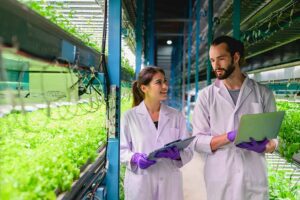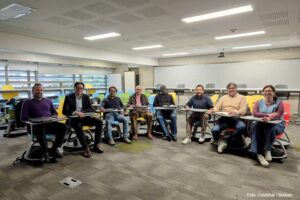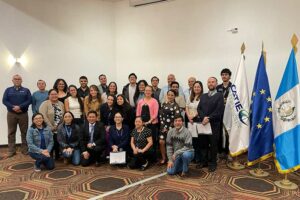CATIE strengthens regional leadership in cocoa disease management at global meeting in Brazil
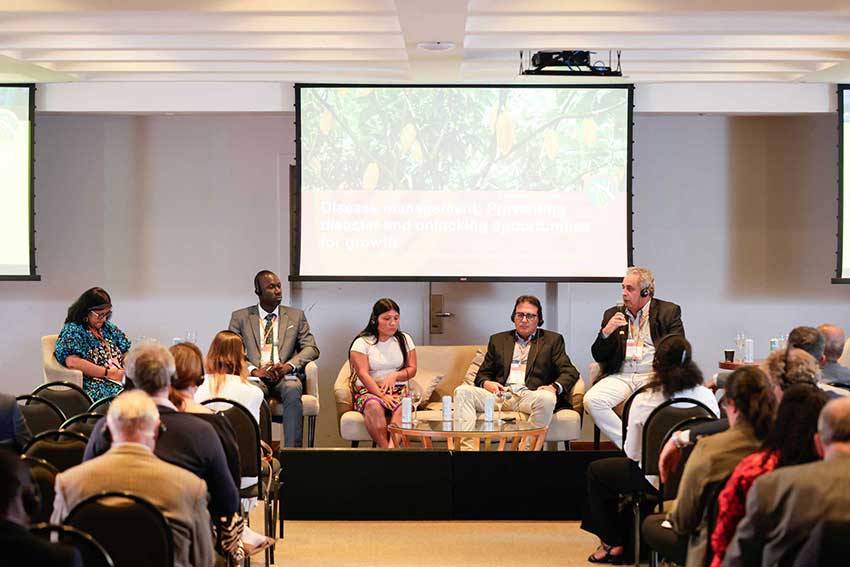
- During his participation in the World Cocoa Foundation Partnership Meeting, Rolando Cerda highlighted the role of cross-border cooperation and CATIE’s work on moniliasis
“No country can combat a cocoa disease or pest alone,” warned Rolando Cerda, Coordinator of the Coffee and Cacao Agroforestry and Genetic Improvement Unit at CATIE (Tropical Agricultural Research and Higher Education Center), during his presentation on the disease management panel at the international event 2025 Partnership Meeting Our Future: Resilience Through Sustainability, organized by the World Cocoa Foundation (WCF).
The event, held from March 19 to 21 in São Paulo, Brazil, brought together international experts, company representatives, cooperation organizations, and research centers to discuss the main challenges facing the cocoa supply chain.
In the session titled Disease management: Preventing disaster and unlocking opportunities for growth, Cerda presented the talk Serious impacts of Moniliasis to Caribbean countries: Strategies to counter this threat, where he highlighted the severe productive and socio-economic impacts of this disease if it reaches Caribbean countries, and CATIE’s work in genetic improvement, conservation of resistant varieties, and good agroforestry practices.
During the meeting, emphasis was placed on the fact that cocoa disease management is not only a scientific challenge, but a systemic problem that requires shared knowledge, active participation of producers, and coordinated efforts between countries.
Building alliances for regional action
In addition to his participation as a speaker, Cerda used the event to strengthen ties with strategic actors and explore future collaborations with the National Chocolate Company (Colombia); FAO Forestry Division (Roma); CORUS / Lutheran World Relief; CocoaAction Brasil, CEPLAC and MAPA; as International Trade Center and Labor Rural (Brazil).
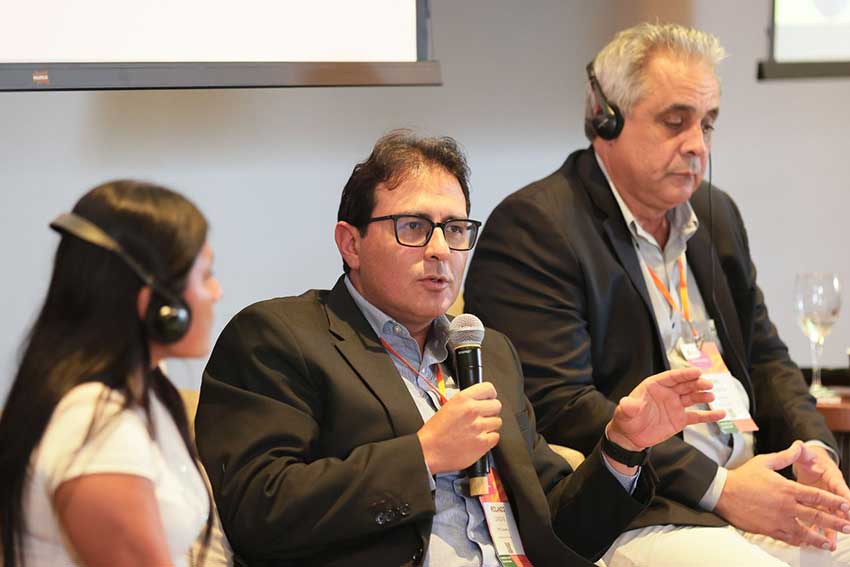
Cerda emphasized that these connections are essential to continue positioning CATIE as a regional actor in applied cocoa research and announced that follow-up will be given to the opportunities that emerged during the meeting, including visits to key producing areas such as the state of Bahia.
“Events like this one highlight the work we do at CATIE and open doors to move forward with joint solutions. Cocoa needs regional action, not isolated efforts,” he concluded.
More information:
Rolando Cerda
Coordinator
Agroforestry and Coffee and Cocoa Genetic Improvement Unit
CATIE
rolando.cerda@catie.ac.cr
Written by:
Karla Salazar Leiva
Communications Officer
Communications and Marketing Office
CATIE
karla.salazar@catie.ac.cr

